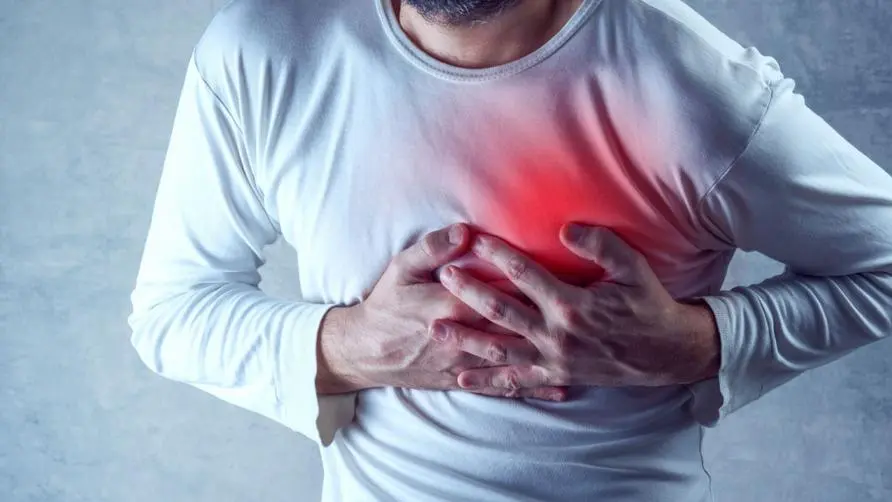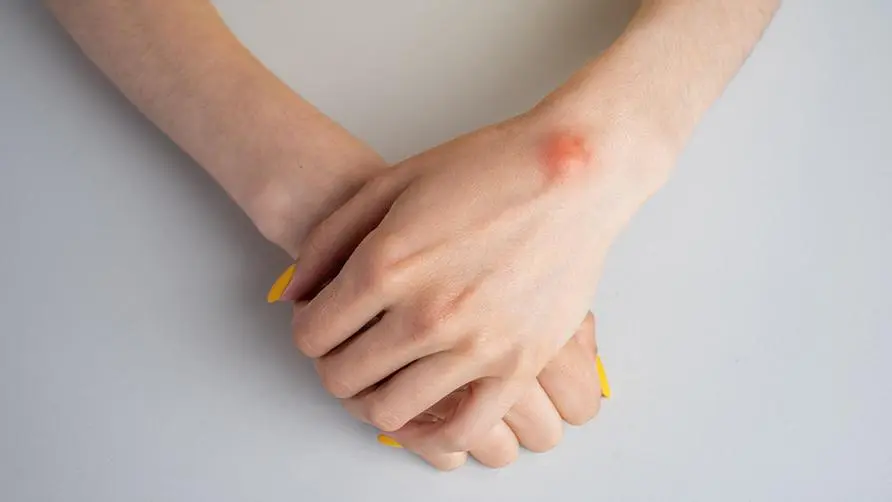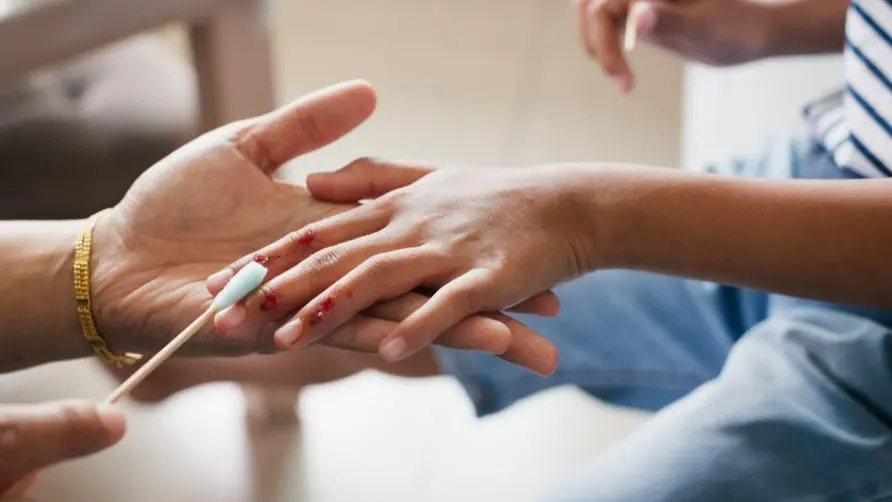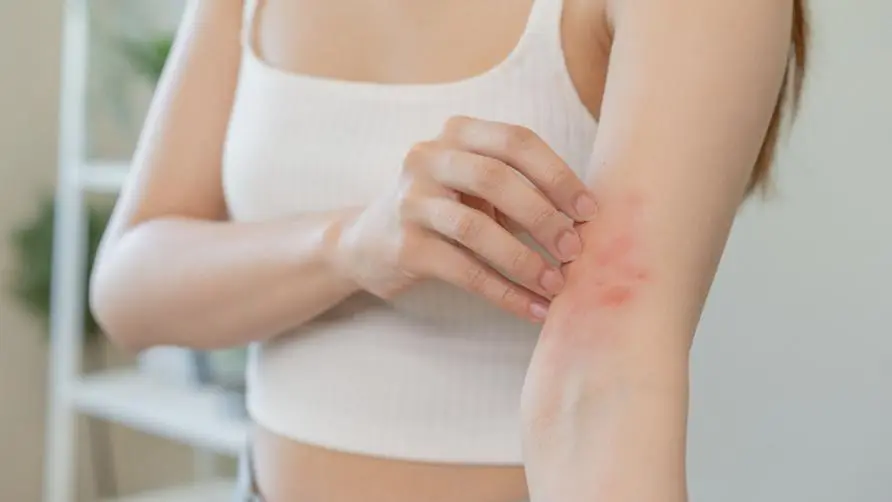Even the genitals grow? If a "powder tumor" appears on your body, don't squeeze it hard: "cheese-flavored secretion" may flow out from the wound.
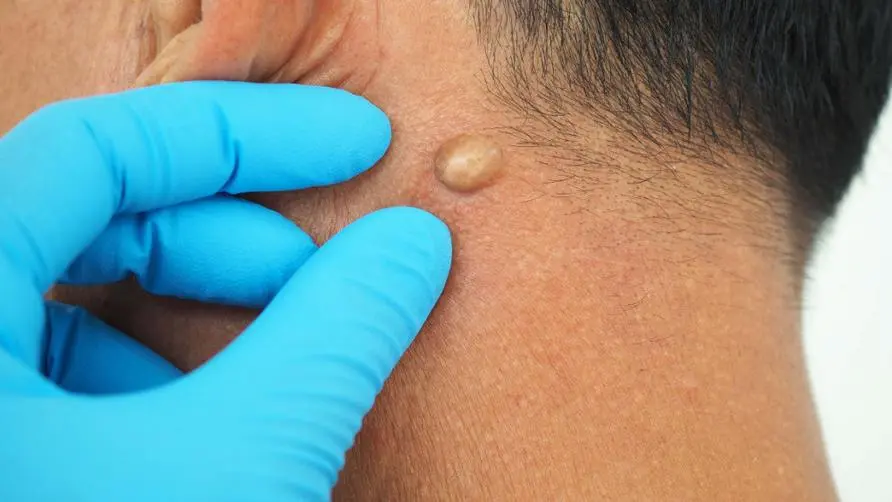
It’s more troublesome than acne and pimples! “Powder tumors” can grow up to 10 centimeters?
The skin tissue suddenly swells abnormally. Be careful, it is not ordinary acne or pimples, but a more troublesome “powder tumor”! Dr. Weng Ziyu, a full-time attending physician at the Dermatology Department of Shuang Ho Hospital of the Ministry of Health and Welfare, said in an exclusive interview that acne is a “benign tumor”. Because of its special structure of “pouches”, it is easy to accumulate keratin metabolites. Compared with acne or acne, it is more difficult to treat. It is more complicated; crowding alone may also lead to the risk of bacterial infection.
How does acne, also known as epidermal cyst, differ in appearance from acne or pimples? Dr. Weng Ziyu explained that generally speaking, due to trauma, blocked hair follicles and other factors, the dermal layer of the skin will accumulate keratin, causing the dermis or subcutaneous fat to form “bags”. If the keratin layer continues to accumulate, the size of the acne protrusion may increase. It can reach about 10 centimeters; acne or acne does not have a bag structure, and its size is not as obvious as that of acne.
In addition, acne and pimples tend to grow on the face, while acne tends to occur in areas with wider and larger skin areas, which are enough to allow keratin to accumulate downwards, such as the back, buttocks, neck, chest, and even limbs, hands and feet. Or genitals and other parts; acne tends to occur on the face. The secretions from acne and pimples will appear white and granular when squeezed out; while acne has a cheese paste-like secretion. If it is squeezed forcibly, the instantaneous pressure difference may cause a “volcanic eruption” and the contents will penetrate into the skin tissue, causing infection or inflammation.
In summer, clogged hair follicles cause acne on the upper body? Doctors reveal 2 major causes of cyst formation
Dr. Weng Ziyu said that the formation of powdery tumors may be caused by, first, external impact, puncture injury or any contusion, which causes epidermal cells to penetrate into the deeper layers of the skin and gradually proliferate to form powdery tumors; secondly, it may be caused by repeated friction of skin tissue, Stifling heat in the affected area causes the hair follicles to become blocked and inflamed, leading to the accumulation of cuticles into balls. Areas prone to sweating or repeated friction, such as the groin or armpits, are often the places where acne is most likely to occur.
As for whether summer is a good season for acne? Dr. Weng Ziyu clarified that Taiwan’s summers are hot and rainy, and acne that is originally easily ignored can easily become more “present” due to sweating and repeated friction, and may even lead to the risk of inflammation or infection. People who seek treatment because they cannot bear the pain The number of patients increases naturally. If it is not treated properly or is crowded, it may even lead to cellulitis, causing the wound to swell, suppurate and continue to worsen.
Pinky tumors are like “illegal construction” on the skin. Only by removing the “cyst” together can there be a chance of cure.
“If pink tumors grow in a more private part such as the groin, continued inflammation may cause severe pain and even affect the posture when walking!” Dr. Weng Ziyu emphasized that pink tumors are like “illegal construction” on the skin tissue. Only by “uprooting” its foundation (subcutaneous cuticle) and structure (cyst) through surgery can there be a chance of complete cure. Simply applying ointments is unlikely to be helpful in eliminating acne.
Generally speaking, before surgical resection, the inflamed lesions of the acne will be treated with local anti-inflammatory needles, and antibiotics will be given to improve the inflammation of the affected area. If the wound inflammation is stable, different types of surgery will be considered based on the location and severity of the affected area. Dr. Weng Ziyu explained that the common approach is to remove the cystic bag and sew it up after anesthesia; those who are concerned about scars can consider minimally invasive surgery, as the wounds are smaller and less likely to leave scars.
As for powdery tumors that grow on softer tissues (such as the face), in order to avoid a sunken appearance of the wound resulting in an unsatisfactory appearance, the doctor may choose to use a “layer-by-layer suturing” surgical method to bring the dermis and epidermis layers closer to the middle to reduce the appearance. dented. If the affected area is too large, difficult to mend, or if you are concerned about whether the accident will leave scars, you can also discuss with your doctor about flap surgery, or interventional treatments using scar removal gel or growth factors.
Dr. Weng Ziyu reminds that if you find that powdery tumors have formed on the skin tissue, you should seek dermatology assistance as soon as possible and have it removed as soon as possible. The smaller the size of the acne, the faster it will heal and the scars will be less obvious. On the contrary, if the size of the acne is too large, it will not only easily cause repeated inflammation and cause trouble in life, but may even cause fibrosis or melanin in the skin’s connective tissue. Precipitation makes the appearance of the affected area unsatisfactory and may increase the chance of scarring in the future.
Are smokers and obese people more likely to develop acne? Doctor: Going to the pharmacy to buy medicine and rub it will not heal you faster!
Regarding the home care and care of powdery tumors, Dr. Weng Ziyu reminds the public that when powdery tumors grow on skin tissue, the following behaviors should be avoided to avoid worsening of the wound:
Squeeze out the secretions. Avoid squeezing the secretions out with your fingers or even cutting the wound with instruments. Without professional assistance, it may lead to severe inflammation of the affected area, severe pain, and even cellulitis.
Believe in unknown folk remedies. For example, there are Internet rumors such as pricking the affected area with a sterilized needle. Misbelief in folk remedies may make the inflammation of the affected area more serious.
Go ahead and buy the drugs. For example, he mistook acne for pimples and pimples, so he went to the pharmacy to buy relevant medicines for swabs, only to find that the medicine had no effect on treating acne.
Continued smoking behavior. The nicotine in cigarettes can easily cause acne inflammation, and wound healing will also be affected.
Too fat. Obesity easily exposes the body to the risk of inflammation, and there is a larger space for accumulation of keratin under the skin, and the progression of acne may be more severe.
Finally, Dr. Weng Ziyu urged that if powdery lesions appear on the skin, in addition to seeking medical treatment as soon as possible, one should also pay attention to avoid wearing tight clothes in daily life to avoid repeated friction of the affected area, which may lead to inflammation. The most important thing is that if you want to prevent acne from recurring and affecting your daily routine, the most permanent solution is to completely remove the cyst through surgery. If you have special needs, you should fully discuss it with a dermatologist.
Further reading:

